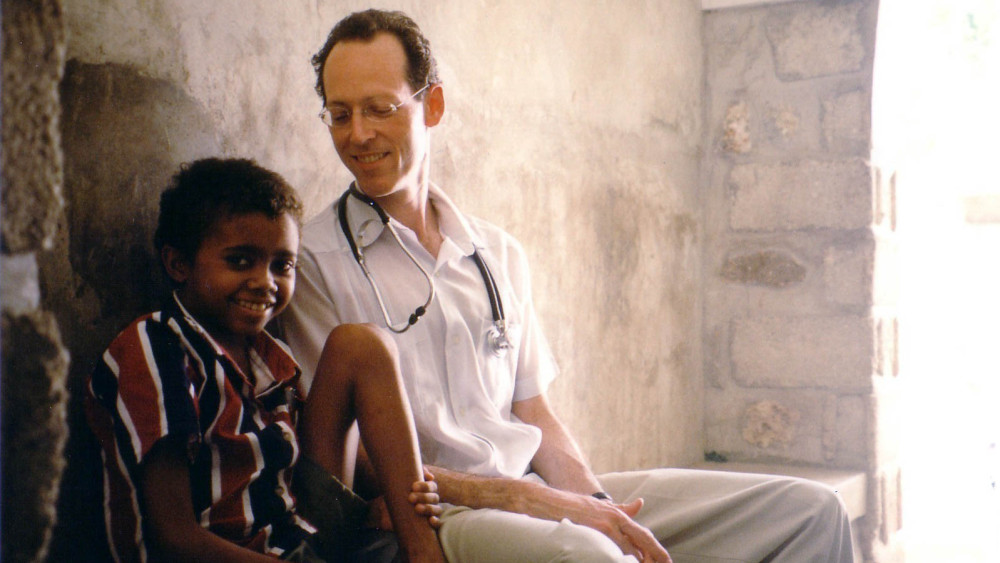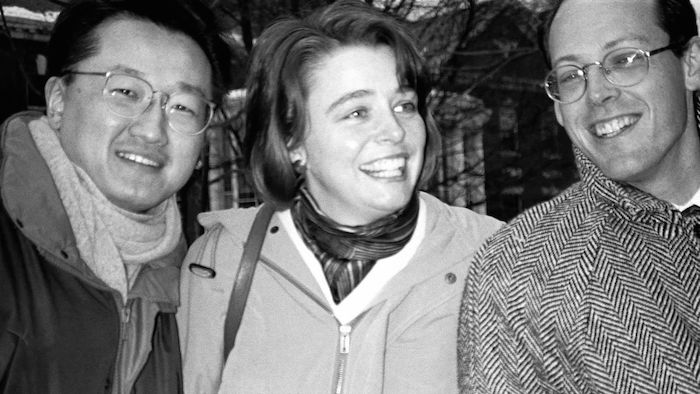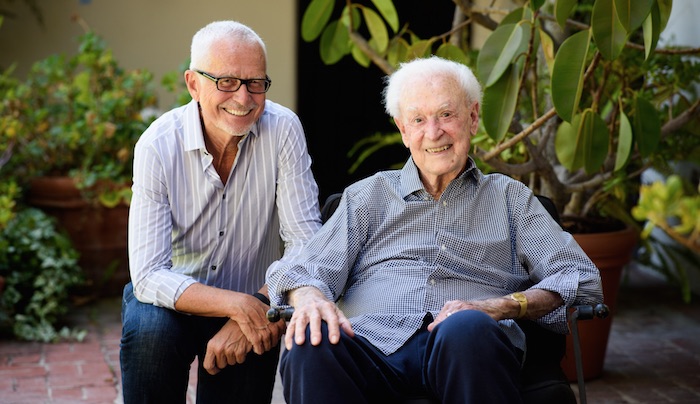MY SAGA
 Wednesday, June 13, 2018 at 9:56AM
Wednesday, June 13, 2018 at 9:56AM With: Adam Harris, Jack Anakin Harris, Perry King, James Arnold Taylor, Steve Gawley, Charles Bailey, Vanessa Marshall, Bonnie Piesse and Erik Bauersfeld.
Writers: Adam Harris, Terry King and David Richardson.
Director: Adam Harris.
World Premiere; Wednesday 13th June at Event Cinemas North Lakes.
Rating: 4/5

There is a moment two-thirds into Adam Harris’ endearing documentary My Saga when the director/narrator utters an understatement as vast as the galaxy itself. In his typically easygoing manner, he observes without a hint of irony, “This was a bit of a geek moment for me.” Anyone who seeks out the Queensland-based filmmaker’s ode to George Lucas’ space opera mythology and how it has shaped and guided his own narrative will experience the same. It is a rousing paean to both fan culture and young fatherhood.
Harris plays cute with the opening moments; a header reads, “Not that long ago, in a country down under…,” before the famous title crawl begins to tell his story. One expects nothing less from a fan opus that wears its heart on its sleeve (who would make a Star Wars-themed film and not open in that way?), but the director and his mentoring co-helmer Terry King understand there is weighty themes at the heart of this story and quickly shift to a more serious tone .
Having established the origins of his Star Wars obsession (a 1983 session of Return of The Jedi at Brisbane’s Regent Theatre), Harris retells the wrenching moment when a scan revealed a dark spot on his brain. The subsequent period of existential introspection led to the realisation he needed to fast track a lifelong memory for his equally Star Wars-enamored son Jack (middle name Anakin, of course). Their destination is America; their plan, to absorb as much Star Wars experience that Jack’s age, Adam’s health and the young family's budget will allow.

The first act of My Saga occasionally teeters near to a ‘fan only’ myopia. The old and young fanboys wander with glassy-eyed wonder around Rancho Obi-wan, the merchandising museum overseen by Steve Sansweet; during a visit to Lucasfilm HQ, Harris interviews Steve Gawley and Charlie Bailey, two ageing Star Wars veterans who recall in detail working with effects gurus John Dykstra and Joe Johnston. Their memories are fascinating, but Jack and his father are largely off-screen for an extended period while these three men convey their own Star Wars journeys.
Harris’ film regains its surefootedness and emotional core when father and son undertake to conquer the madness of Star Wars Celebration 2015, the 4-day 2015 gathering in Anaheim during which the teaser trailer for Star Wars: The Force Awakens was launched. The fan response to the teaser, in particular that first sight of an aged Han Solo and Chewbacca is now legendary. The footage of the moment it impacted father and son as it unfolds before them is extraordinary; the roar of a packed auditorium conveying the immensity of the moment, coupled with the profound affect it has on Harris (and the bemused awe conveyed by Jack), makes for a special cinematic moment.
These scenes turn My Saga into ours, as well; the audience engagement is complete. Scenes that reveal the burden that Harris carries – his breakdown when interviewing actor Perry King (the radio play version of Han Solo); his encounter with another father attending Celebration, with an ailing son – are deeply emotional. As Harris continues upon his journey, the essence of the bond it is forging between he and his boy takes on sharper focus. Patriarchal legacy is one of the most resonant themes of Lucas’ mythology and so it becomes with Harris’ beautiful film.
In recent days, the vile toxicity of contemporary fan culture and its impact upon The Last Jedi actress Kelly Marie Tran has darkened the Internet. Offering evidence that a shared understanding of and love for creations of the imagination can be life affirming, My Saga is the perfect counterpoint for anyone who harbours ill will within the Star Wars universe. The trolls should be forced to wake up to themselves and reconsider their allegiance from the perspective of Jack and Adam Harris.


















